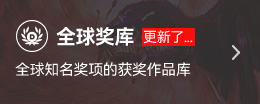拒絕“女神節”,我們總結了一份女性營銷防踩雷指南
 又一年的婦女節如期而至。隨著女性購買力以及女性消費需求的顯著上升,婦女節逐漸成為了各大品牌與平臺的又一重要營銷陣地。
又一年的婦女節如期而至。隨著女性購買力以及女性消費需求的顯著上升,婦女節逐漸成為了各大品牌與平臺的又一重要營銷陣地。
Another year, another International Women’s Day. With the significant increase in women's purchasing power and female consumer demands, this holiday has now become yet another major marketing battlefield for brands and e-commerce platforms.
然而不少品牌在婦女節的營銷手段和創意上,尚未與女性消費者建立起真正的情感聯系,缺乏對時代思潮與當代女性精神內核的敏銳感知,僅通過在其廣告中制造男性欲望投射下的“完美女性”形象、以及圍繞前者的各色精致場景來大肆帶貨,營造出一種由物質構筑而成的理想化社會符號。近年來各大電商平臺更趨于將婦女節冠以“女神節”、“女王節”等稱號,試圖將其渲染為帶著玫瑰色濾鏡的“女性贊歌”,實質是引導女性認同廣告內所展示的理想形象設定,為“獲得男性認同”這一最終目的所驅動,而甘心掏腰包。其實,這一充滿了“男性凝視”的物化意味的營銷手段,在女性話語權崛起的當下,不僅難以奏效,反而適得其反。
However, many brands have failed to establish a genuine emotional connection with their female customers, not bothering to dig into the zeitgeist of the era as well as the inner worlds of contemporary women. Their lackluster portrayal of a “perfect woman” surrounded by lavish scenes is no more than a patriarchal projection, which only translates into an empty symbol constructed of shiny golden objects. In recent years, some Chinese e-commerce platforms are even trying to brand International Women’s Day as “Goddesses' Day” or “Queens' Day”, camouflaging it as an “ode to women” under rose-tinted glasses. But at its core, the goal is just to convince female consumers to buy into this idealized image driven by male appreciation and squander money. In fact, this type of marketing approach which projects a typical “male gaze” might very well backfire at a time when feminism is on the rise.

那么,品牌應該怎么做,才能與新時代的女性消費者共情?今年的婦女節,邁則總結了三條不會出錯的鐵則。
So what do brands do to empathize with female consumers of the new era? This year’s International Women’s Day, MADJOR put together three guiding principles that can never go wrong.

“男性凝視”是近年來常在性別問題中被提及的詞匯,它意味著在男性視角的審美之下形成了一些社會慣例,最終變為對女性施加的約束。具體體現為對身高體重的憂慮,對容貌衣飾的在意等。在此語境下,女性仿佛變成了可供把玩與觀賞的客體。
The "male gaze" is a term often mentioned in recent gender equality conversations, implying the act of depicting women from a masculine perspective, which eventually turns into a constraint imposed on women. This can be reflected in women’s concern for height and weight, and the concern for appearance and clothing. In this context, women seem to have become an object to be watched and consumed.

△ 茶顏悅色物化女性的“翻車”案例
“Many hot chicks get milk tea from us. Consider yourself lucky if you pick one up at our store!” – a notorious fail from a popular Changsha-based milk tea brand.
現如今,新媒體的蓬勃發展讓女性獲得了發聲機會。微信、微博、小紅書、B站、抖音等社交平臺的涌現,不僅搶占了傳統媒體的話語權、讓大眾接觸到更多元化的思想,也為女性表達個人主張提供了更多渠道。于是越來越多女性不再滿足于被裹挾在時代的審美意識中,拒絕被社會定義,向往更自由的自我表達。事實是,女性的美是多樣的、個人的、復合的,而不是“順從、性感、白幼瘦“的單一審美。或許這就是為什么主打性感的維秘在中國市場節節敗退,而喊出“微而足道,無分你我”、主張女性自我認同與多元之美的內外獲得了更多消費者的青睞。
These days, the booming social media has given women the opportunity to make their voices heard. Chinese social media platforms such as WeChat, Weibo, Xiaohongshu (RED), Bilibili, and Douyin (TikTok) have not only largely taken over traditional media, but also expose the public to diverse viewpoints including those from women. As a result, more Chinese women are saying no to the mainstream beauty standard, refusing to be defined by society and calling for self-expression. Truth is, women's beauty comes in diverse forms, often very personal and multidimensional, rather than being just "submissive, sexy, light-skinned, young, and thin" - all coveted traits of a Chinese beauty. Maybe that's why the sexy lingerie brand Victoria’s Secret is falling out of fashion in China, while Neiwai, a domestic underwear brand that boldly claims “No body Is Nobody", has gained more consumer favor by advocating for women's self-identity and body inclusivity.




長久以來,女性都以附屬品的身份存在:妻子、女兒、母親……她扮演了許多角色,卻唯獨不是她自己。但新時代女性并不想通過依附他人來成就自我價值,她們更想作為“自己”發光發熱。也因此品牌的營銷理念亟需從“女為悅己者容”向“女為悅己而榮”發生轉變。變化的背后,是一場女性的內心革命和獨立精神人格的進化。
For a long time, women had existed as an appendage to someone. Wife, daughter, mother… She plays many roles, only not herself. But women of modern time refuse to settle for a dependent life. Rather, they aspire to achieve self-worth on their own terms. That’s why a significant shift in brands’ messaging from "winning with beauty " to "winning with inner beauty" is required to echo women’s inner revolution and celebrate a step forward towards mental independence.



△ Nike的“管什么分寸”campaign脫離了傳統女性社會角色的窠臼,捕捉到在男性主導的職業場景中發光發熱的女性形象。
Nike's "What's the Matter?" campaign sets to break gender stereotypes and honor women’s presence in traditionally male-dominated professions.
品牌的營銷創意能在多大程度上能和女性消費者產生共鳴,取決于創意是否能夠與她們生命中的某個瞬間產生連結,讓她們瞬間進入自己的內心世界,對過往自身的經歷與感悟進行搜索匹配,從而從創意中的“她”身發現自己的影子、建立共情。
The extent to which a brand's marketing campaign can resonate with female consumers depends on whether it connects a certain dot in their lives, whether it sends them right down memory lane searching and matching their experiences and emotions. Eventually they will see on the campaign their own reflections and develop an emotional bond with the brand.

在如今銷量至上的商業戰場上,“品牌溫度”這一概念逐漸成為了品牌差異化的關鍵。產品的推陳出新只是吸引女性消費者的第一驅動,要建立持久有效的驅動力,還要看她們是否能夠持續感知品牌的溫度——社會責任與人文情懷。拋去銷量不談,品牌應當自問:我們的內容是否真正能夠在社會層面對女性群體產生幫助?一個成功的女性營銷campaign,必定是站在品牌的角度真切的為女性發聲。
In a business world so sales-driven, the idea of "brand warmth" has evolved into a powerful brand differentiator. Frequent product releases are only the attention grabber to attract female consumers, but it takes brand warmth to build a lasting buying drive, by taking up social responsibilities and projecting human emotions. Let’s put sales aside for a moment. Think about the social values of your campaign and the role your brand is playing in society. Is it actually helping the female community make a difference? A successful female marketing campaign must be one that genuinely voices for women.


△ 丁香醫生 x ukiss “紅妝亦是武裝”
“Your Lipstick Is Your Weapon” campaign. Cosmetic brand ukiss collaborated with medical platform Doctor Clove (dxy.com) to give away 1,000 close-to-expiringlipsticks for girls to cross out illegal egg donation ads.
(Messages written with lipsticks: “Don’t hurt yourself.” “Girl, please love yourself.”)
新時代女性不想要“雌競”,她們對于同性,更多時候保持著一種欣賞、相惜和互助的態度。因此,品牌不妨從聯合女性力量的角度出發,通過強調女性群體的互助情誼、為女性建立起情感社區,有效提升品牌好感度;更重要的是延展和加強了創意背后的社會意義,為品牌賦予了精神內核,令女性消費者對品牌產生長久的信任感和認同感。
Women today want no more of that "women hating other women" drama. Mutual appreciation and mutual help are the trends. So brands might want to look at the approach of bringing together the entire female community, by highlighting the support coming from other fellow women, and bonding a sisterhood among the female audience. More importantly, this approach extends and reinforces the social values of the campaign and gives the brand a new dynamic, ensuring lasting trust and brand identification among female consumers.
總的來說,新時代女性消費者在消費觀念上愈加趨向多元、包容、獨立、自強的底色。品牌們需要有敏銳的視角,對女性議題有充分的洞察和理解,傳播正確的、為女性消費者所認同的價值觀,方能有效轉化。
Generally speaking, female consumers today tend to take on a more diverse, inclusive, independent and self-empowered perspective when making buying decisions. Brands need to dig a bit deeper into gender equality issues with sharp eyes, and spread the right message that can be identified by female consumers to achieve conversion.
祝大家婦女節快樂!邁則衷心希冀每位女性都能首先成為自己,再去活成自己想要的樣子!
We wish all the brilliant girls out there a Happy International Women's Day! Stay true to yourself and keep rocking!
轉載請在文章開頭和結尾顯眼處標注:作者、出處和鏈接。不按規范轉載侵權必究。
未經授權嚴禁轉載,授權事宜請聯系作者本人,侵權必究。
本文禁止轉載,侵權必究。
授權事宜請至數英微信公眾號(ID: digitaling) 后臺授權,侵權必究。





評論
評論
推薦評論
暫無評論哦,快來評論一下吧!
全部評論(0條)